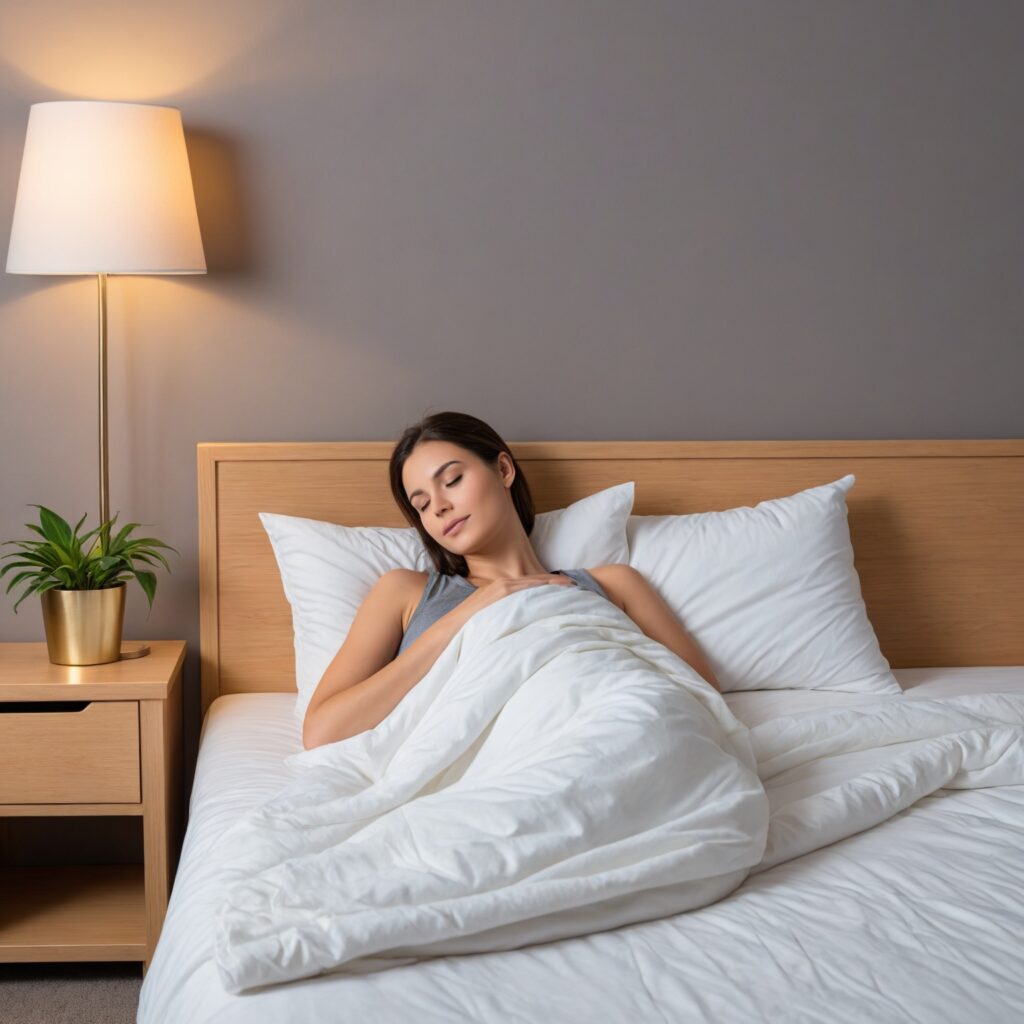Optimal Sleep Time: Boost Your Mental Health with Proper Rest
In today’s fast-paced world, striking a balance between work, social life, and personal health can be challenging. Among these, one of the most crucial yet often neglected aspects is sleep. According to a recent study, ensuring you go to bed at the right time can significantly improve your mental well-being. In this article, we explore the optimal sleep time and its profound impact on mental health.
The Science Behind Optimal Sleep
Our bodies operate on a 24-hour cycle known as the circadian rhythm, which is heavily influenced by environmental cues like light and temperature. Going to bed at a consistent time every night helps regulate this rhythm, ensuring we get the proper amount of rest required for mental and physical health.
What is the Optimal Sleep Time?
The study referenced suggests that adults should aim to be asleep by 10 PM to reap the maximum mental health benefits. Falling asleep by this time allows for more efficient and restorative sleep cycles, contributing to better cognitive function and emotional stability.
Benefits of Sleeping by 10 PM
- Improved Mood: Adequate sleep helps regulate emotions and increases resilience to stress, anxiety, and depression.
- Enhanced Cognitive Function: Proper sleep bolsters focus, memory, and decision-making abilities, all critical for personal and professional success.
- Physical Health: Quality sleep supports immune function, aiding in the body’s ability to fend off illnesses.
- Better Relationships: Improved mood and cognitive function can lead to more fulfilling interactions with loved ones.
Psychological Benefits
Sleep is closely linked to mental health. Lack of sleep can exacerbate symptoms of various mental health disorders, including:
- Anxiety: Poor sleep can trigger anxiety or make existing anxiety worse.
- Depression: Inadequate rest has been linked to the onset and exacerbation of depressive disorders.
- Stress: Regular sleep patterns help in managing and reducing stress levels.
Creating a Sleep-Friendly Environment
Achieving optimal sleep isn’t just about timing; it’s also about creating an environment conducive to rest. Here are some tips to ensure you get the best sleep possible:
- Eliminate Blue Light: Avoid screens at least an hour before bed to prevent the disruptive effects of blue light on your circadian rhythm.
- Maintain a Cool Temperature: Keep your bedroom cool (around 18°C or 65°F) to facilitate better sleep.
- Limit Noise: Use earplugs or white noise machines to minimize disruptions.
- Comfortable Bedding: Invest in a quality mattress and pillows to ensure physical comfort.

Establishing a Bedtime Routine
Consistency is key to optimizing your sleep schedule. Implementing a pre-sleep routine can signal your body that it’s time to wind down. Consider incorporating the following activities:
- Reading: A calming book can prepare your mind for sleep.
- Meditation: Breathing exercises or mindfulness practices can help reduce stress and ease you into sleep.
- A Warm Bath: This can help relax your muscles and lower your body temperature, signaling that it’s time for sleep.
- Journaling: Writing down your thoughts can clear your mind and reduce nighttime anxiety.
What Happens When You Don’t Sleep Enough?
Ignoring the body’s need for adequate sleep can have severe consequences, including:
- Decreased Cognitive Performance: Lack of sleep impairs attention, alertness, concentration, reasoning, and problem-solving.
- Emotional Instability: Sleep deprivation can lead to irritability and mood swings, affecting personal and professional relationships.
- Health Risks: Chronic sleep loss can result in health issues like obesity, heart disease, and diabetes.
Mental Health Disorders
Chronic insomnia or sleep deprivation can trigger or exacerbate various mental health disorders, such as:
- Bipolar Disorder: Irregular sleep patterns can trigger manic or depressive episodes.
- Schizophrenia: Poor sleep can worsen symptoms and make management more challenging.
- ADHD: Lack of sleep can increase hyperactivity and attention issues.

Conclusion
In summary, adhering to an optimal sleep schedule, particularly ensuring you sleep by 10 PM, is vital for maintaining and improving mental health. By understanding the benefits and adopting recommended habits, you can significantly enhance your quality of life. Prioritize your sleep to unlock your full potential both mentally and physically.
Remember, optimal sleep isn’t a luxury; it’s a necessity. Empower yourself with the right information and habits, and watch your mental health flourish.
“`

Comments are closed.